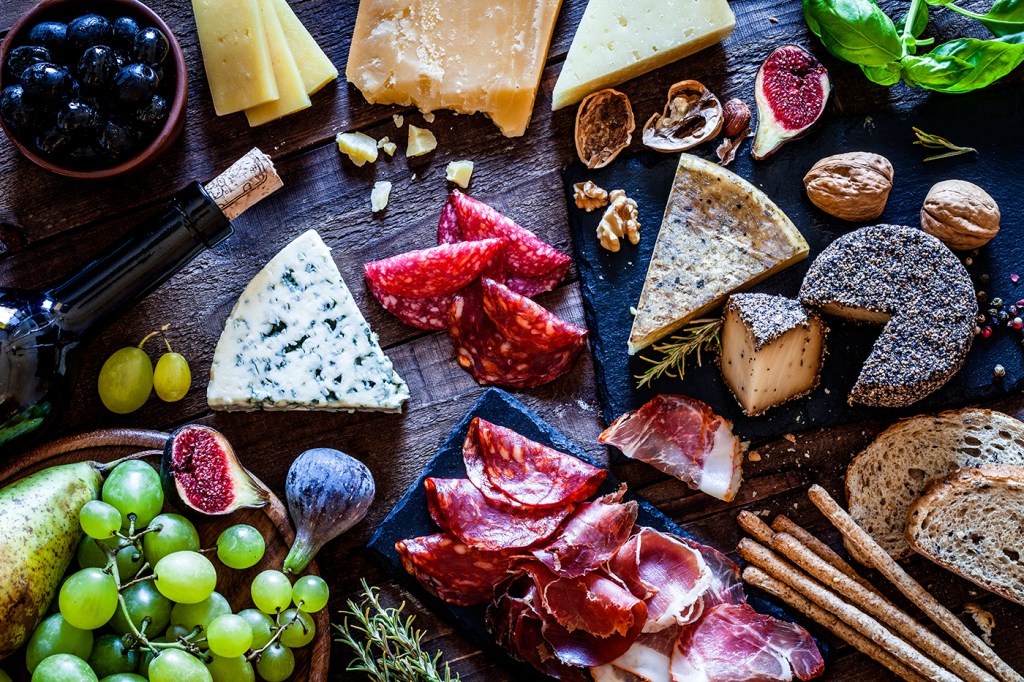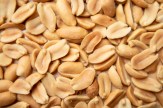Cheese plates, eggnog, and gingerbread houses: How to enjoy your favorite holiday treats without getting food poisoning
Northeastern food safety expert Darin Detwiler shares his tips and tricks, as well as advice on what holiday foods to avoid entirely.

The holiday season is marked by traditions, not the least of which revolve around food. Whether you’re feasting at someone’s home or simply planning on indulging in a gingerbread house, food is a big part of how we celebrate.
It can also raise concerns about food safety.
“You do not want a holiday gathering to be remembered for the wrong reasons,” says Northeastern University associate teaching professor and food safety expert Darin Detwiler. “It’s very hard to figure out what’s the right gift to buy someone for the holidays. Perhaps one of the best gifts you can give is that of being a food safety hero. Everyone benefits from a food safety hero.”

Beyond the basics (washing your hands, avoiding cross-contamination and keeping foods at the proper temperatures), what can be done to avoid food poisoning during the holiday season? Here Detwiler offers his best tips on how to protect yourself and your loved ones while still indulging in holiday favorites.
Cheese plates and dips
The charcuterie board is a holiday crowd-pleaser. But make sure you watch the clock on just when exactly that board goes out.
“I don’t like eating foods that have been left out over two hours,” Detwiler says.
This goes for spinach dips, homemade salad dressings and deviled eggs. Anything that needs to be refrigerated should only be left out for a limited amount of time to ensure it’s safe to eat.
Not sure when that cheese board was placed out? Detwiler says to look for signs the food’s gone bad: the cheese may be “sweating” or changing color or may smell as it starts to curdle. Certain soft cheeses, like Brie, carry a higher risk of listeria.
Editor’s Picks
“We have to be careful of those,” Detwiler added. “I’m not saying be afraid of them, but know they tend to be something people put their hands on a lot and people can cross-contaminate.”
If you’re hosting, ask your guests to bring crackers or other goods that don’t need to be refrigerated so you don’t risk someone bringing cheese that sat unrefrigerated in the car on the drive over. Only put out a small amount of cheese or dip at a time and leave the rest in the fridge so you can replenish as needed and don’t risk food going bad.
Seafood platters and dishes
Many Italian Christmas celebrations include seven fishes. Seafood can sometimes be tricky to cook, but there’s only one you really need to worry about, Detwiler says.
“I would avoid oysters like the plague,” he says, adding that the shellfish is considered a very high-risk food due to how it’s often served raw.
But other seafood dishes — including shrimp cocktail — are OK as long as they are only out for two hours.
“That’s standard across all perishable, cooked or refrigerated goods,” he says. “You need to keep hot food hot and cold foods cold.”
Gingerbread houses and candy canes
Pastry architects can rest easy: Gingerbread house kits are “usually fine” according to Detwiler.
“The only concern is if you’re doing something with raw flour,” he added. “Don’t eat raw flour. Anything with raw eggs, make sure it’s cooked. But typically, the kind of kits you use to make gingerbread houses, they’re typically fine.”
And rest assured, if you graze the candy and icing after your creation for weeks after, it’s “not as problematic as other things.” Same goes for candy canes that have been adorning Christmas trees for weeks: They’re safe to eat even if they’ve been hanging out since Thanksgiving.
Raw cookie dough
Do you enjoy licking the cookie dough off your spoon after you’re done mixing the batter? Not so fast. It might taste good in the moment, but the raw ingredients might leave you in regret later. And because of them, there is simply no safe way to enjoy this illicit treat, Detwiler says.
“Between the raw eggs and flour, you don’t want to be eating that stuff,” he adds. “That has gotten far too many people sick.”
Eggnog
Similar to raw cookie dough, eggnog is a holiday time temptation, but consumers should make sure the eggs being used are pasteurized, Detwiler says. Your best bet is to get your ‘nog from the grocery store, where products tend to be pasteurized to kill off bacteria.
Editor’s Picks
Mixed drinks
Your family’s traditional bowl of spiked punch is probably safe. Just make sure the ice being used to keep the drink cool in an ice chest isn’t then being put in said drink, Detwiler says.
“If you’re using ice to put drinks in and keep them cold, then you cannot use that ice in your drink,” he adds.
Leftovers
It happens every holiday season: the host — opting to be safe rather than sorry — buys twice the food needed for their party and is left with enough food to last a week. But they’re better off tossing those leftovers after three to four days, Detwiler says. After that, they’re probably not good to eat.
“What I would do is ask everyone to bring a container, or maybe you just get aluminum pie pans and you can send everyone home with a plate,” Detwiler says. “If everyone is sent home with a little bit, that doesn’t leave you having all of it forever.”
If you somehow end up saddled with more food than you can eat in a few days, Detwiler recommends freezing it which will make the food last several months.










